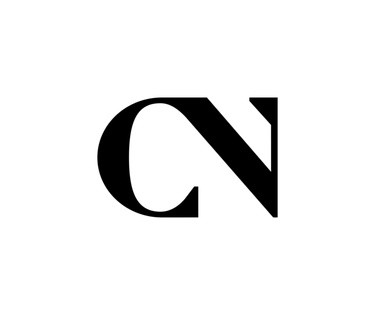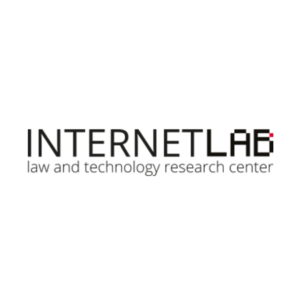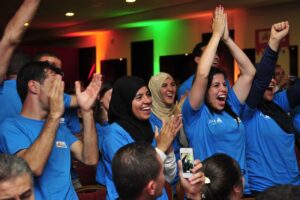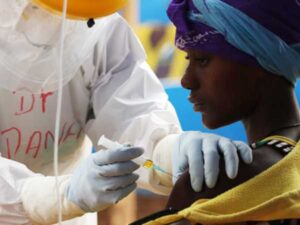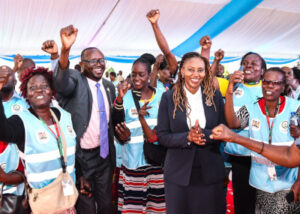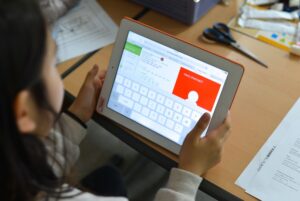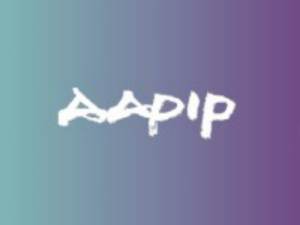Civic Nation is a nonprofit ecosystem that runs high-impact organizing and education initiatives around issues related to democracy, gender equity, and economic mobility.
Kyle Lierman of Civic Nation spoke with Ashley Hopkinson on November 29, 2023. Click here to read the full conversation with insights highlighted.
Ashley Hopkinson: Can you start by introducing yourself, the problem that you’re working to solve, and how you are solving that?
Kyle Lierman: Yes. Great to be with you. I’m Kyle Lierman, CEO at Civic Nation, I’ve been leading this organization since 2019. Civic Nation is an ecosystem, a nonpartisan, nonprofit ecosystem for high-impact organizing and education initiatives. We focus on democracy issues, we focus on gender equity, we focus on economic mobility. We also focus on having the capacity to drive culture change, behavior change, and systems change. One of the solutions that we’re focused on is being nimble, being able to come up with a solution and having the capacity to solve a problem quickly when so many nonprofits that do incredible work day in and day out don’t always have slack capacity. We really pride ourselves on being able to respond quickly, respond effectively, and build new campaigns when we need to solve big challenges.
We did that when the pandemic hit. When the vaccines came out, we saw there was a huge amount of inequity, both in vaccine access, but also in trust in the COVID-19 vaccines. We built a campaign called Made to Save, as in the COVID-19 vaccines were made to save. From the day we fully decided we were doing it to launch was about two months. We were able to really turn on a dime and build and launch that campaign. It ended up being a 16 and a half million dollar effort that reached tens of millions of people across the country with good information about the vaccine.
We have specific issue areas that we focus on, but we also really believe in, as an ecosystem, for these campaigns, for these initiatives, having the capacity to be nimble, to move quickly, and to not just be laser-focused on one thing because all these problems are interrelated. When you’re talking about working on democracy, that’s deeply related to economic mobility, deeply related to racial equity, deeply related to gender equity. So, you can’t just focus on one thing, we think you have to be able to focus on the communities that you’re trying to support and step back from that and say, “What are the things that we can drive? What are the things we can do as an organization that positively impact the folks that we’re focused on, which is young people, women and communities of color across the country?”
Ashley Hopkinson: Who would you say Civic Nation is serving and how do you reach them?
Kyle Lierman: We are focused in the United States on young people, communities of color and women. We really do dig in on supporting lower-income communities. I think about the work that we do in two veins. One is building civic power, is how we talk about it. The other is how are we using our civic power? The way we reach folks is that we look at how we are building our civic power as an organization. What that means is how we are improving our reputation as an organization both at Civic Nation or the campaigns that we’re launching. It’s not just because we want to have a good reputation, it’s because you need a good reputation if you are going to be trusted by folks. So, that’s number one. Number two is how are we building our trusted reach in the communities that we’re trying to engage? What that means is how many people can we talk to, either directly or through partners, who trust what we are saying to them and who believe what we are saying to them? Three is we always try to continuously build out what we refer to as our power network. Who are the partners, who are the athletes, who are the celebrities, who are the influencers, who are the media partners that we can work with to drive communications through, to drive messaging through on the key things that we’re trying to advance? Four, what is our access to capital? That is both the money that we have and the money that we can raise. Five, always making sure we have great talent at the organization. We have a remarkable staff, about 80 folks, just an unbelievable group of people that do incredible work day in and day out. So, we have to have that talent and they have to have the capacity to focus on the things that they need to focus on to drive change. In terms of how we reach them, we build that capacity, we build those lists, we build those networks, and then we utilize those networks to drive behavior change, culture change, and systems change.
Ashley Hopkinson: What makes Civic Nation distinctive?
Kyle Lierman: We’re an ecosystem. We’re not just focused on one issue. We look at this as a holistic, how are we serving the community? I think actually a lot of community-based organizations approach their work that way. I don’t know if there are many national organizations that approach their work that way. I think we are trying to emulate the community organizations that we work with on the ground by being great partners at the national level.
We’re unique in that we are not a fiscal sponsor, we’re not a think-tank. We think of ourselves as an ecosystem, as a movement sponsor, as a place where people can come up with great ideas to build meaningful campaigns and initiatives that drive meaningful impact. And also, we don’t ignore policy, but policy is not our main focus. There are incredible strict advocacy organizations out there, strictly thought leadership and sort of think-tanky organizations out there. We really exist to drive change through organizing. Organizing at every level, organizing at the grasstops levels, organizing CEOs and mayors and the federal government, and state, and local elected officials, and athletes, and celebrities. Organizing at the grasstops level and organizing at the grassroots level. Your volunteers, your educators, your student leaders, your everyday folks who want to stand up and make a meaningful impact on a particular issue. By combining organizing at both of those levels, we feel like that gives us the special sauce to really drive the change we seek.
Ashley Hopkinson: Do you have a story of impact from Civic Nation that you can share that illustrates the work you do and the difference that you make?
Kyle Lierman: Well, this is a little bit of an origin story for Civic Nation, and this is personal to me, this is many years ago, before Civic Nation even existed as an organization. At the time I was working in the White House Office of Public Engagement. President Obama and then Vice President Biden launched something called the White House Task Force to Combat Sexual Assault on College Campuses. I got a call that day from my sister, who’s eight years older than me, and she told me that she had been sexually assaulted when she was at Dartmouth. I had capacity. I was at the White House. I had agency. But it led me to work with a team of people at the White House to bring together the grasstops folks and the grassroots folks. The NCAA, celebrities and athletes. I talked to 425 student body presidents. And we built the It’s On Us campaign, basically off of the basis of the fact that we needed to drive prevention education around sexual assault and consent education around sexual assault. But I tell that story because it was very personal to me. We all have agency. I happened to have a lot of agency at that point in time because I was in the place where we had enormous convening power, but we try to help folks and empower folks to utilize the agency in whatever way they can. So, if you are an educator, you can have the agency to make sure your high school seniors are registered and ready to vote when they graduate from high school. If you are a celebrity, you have an enormous platform and it’s about how you are using that platform to drive impact.
That was a story about me, but I will say back to It’s On Us, it now lives here as a part of our 501(c)(3) at Civic Nation. The stories I’ve heard of people who got involved in the fight against sexual assault for the first time because of It’s On Us. We’re coming up on our 10-year anniversary next year. It created a whole new generation of people who understood that they could do something when it came to stopping sexual assault on college campuses.
So many people think about these problems as one in five women, but one in 16 men are sexually assaulted on their college campus. That’s an intractable issue when you look at it from that numbers standpoint. When you work with an effort like It’s On Us, you understand that you can be a part of the change on your campus on that issue. In seeing that you can be a part of the change on that issue on campus, it sort of opened up people’s eyes to how they can be organizers for change in so many other ways. That’s just been one of the most heartening things for me is obviously seeing the impact of the work, but also, seeing how the campaigns that we launch and the initiatives that we run unlock people’s understanding of their own capacity to make an impact, and that’s been really powerful.
Ashley Hopkinson: You mentioned earlier the Made to Save work, would you say it was a similar thing? One person saw what was happening and then you just saw a lot of groundswell happening?
Kyle Lierman: Well, and that was another thing. The pandemic, talk about an intractable issue, but also a divisive issue. What we were able to do through the Made to Save campaign was give organizations that had never worked on healthcare before, that had never worked on health equity before, companies that had never focused on these issues and individuals who had never focused on these issues, a playbook to engage, a playbook to be a part of the solution and the training to be a part of the solution, so that they felt armed and ready to be on the forefront of helping us get through the pandemic. Made to Save was such a great example of how we are jumping into the fray and then empowering a legion of individuals, organizations, companies, and influencers to have a meaningful impact on an issue through changing people’s culture and behavior.
Ashley Hopkinson: Since Civic Nation is an ecosystem and a lot of things are interconnected, how do you measure success? What’s your evidence that Civic Nation is making progress?
Kyle Lierman: I talked to you already about how we are building power as an organization, building civic power. We actually think of that as a measure for success because from an internal standpoint, we can only make an impact if we have the power to make an impact. We measure how we are building our civic power as an organization internally in a very serious way. So, how are we building power? Then, how are we using our power to make an impact? On the building power, I walked through those pillars. On using our power, I mentioned behavior change, culture change, and systems change. So, each of those we kind of look at and tackle in different ways when it comes to measuring success.
With changing behavior, in our democracy work, it’s looking at are we getting someone to register to vote and are we getting someone to vote? We literally have a system set up where we can track who exactly we’ve registered, what tactic we use to register them, what tactics were used to educate them about the voting process, and then ultimately, are they voting? So, that’s on this sort of individual behavior change level. Again, in the democracy space, we have a program called the ALL IN Campus Democracy Challenge that works at the systems level by getting a college president or a dean of student affairs to say, “It is my responsibility as an administration at a college or university to help my student body register and vote.” And so, we’re changing and strengthening democracy at the system level by, I think 970 colleges and universities are a part of the ALL IN Campus Democracy Challenge now.
We measure success there by both outputs, how many campuses do we have engaging with us, but also outcomes. We can measure the turnout. In partnership with Tufts, we matched the enrollment roles with the voter rolls. We can tell a college and university what percentage of their student body is turning out to vote. How much did that increase over the last election? How much did that increase over elections two years ago? That’s a behavior example on the voting side, and that’s the systems example on the voting side.
Then, throughout each of the campaigns, we’ve gotten much better over the years at measuring the behavior change in particular. I will say one of the things that’s been challenging is measuring culture change for us. Much of what needs to be done to drive change is how you are changing the culture. How are you advancing culture? With It’s On Us for example, what we found was in our research before we launched, most in particular, young men, didn’t feel comfortable stepping into stop a sexual assault before it happened. They felt like that would be kind of anathema on their campus. So, when we launched, we actually had a different name. One of the names we were looking at was Get In The Way, because the idea was you need to get in the way to stop it from happening. We realized we couldn’t start with behavior change. No one would get in the way, unless culturally, on your college campus, it was acceptable to step up and stop. So, we launched a broader culture change effort first, which was the It’s On Us campaign, to change the atmospherics and the culture on the college campuses, and make it more acceptable to step up. Then, we moved into the training, but it’s hard to measure culture change. We’re continuing to try and evaluate at a macro level through anecdotes, through stories. I’d say we have work to do as an organization when it comes to measuring how we’re changing culture and what are the direct things we’re putting in that are resulting in outcomes that’ve been challenging. It’s something we’re still learning.
Ashley Hopkinson: Can you share anything that you’ve tried at Civic Nation since you’ve been there that didn’t quite meet the expectations, and what you learned from that?
Kyle Lierman: I will say one bucket where we had the best laid plans, and then the pandemic hit, was that we had a huge program set up to register and educate and get high school seniors out to vote. Pandemic hits March 2020. The program had sort of just gotten up and running. Boom, the entire K through 12 infrastructure is knocked on its heels and focused on other things for obvious reasons. Kids weren’t at school. So, the whole idea of utilizing schools as a place where people are just fell flat on its face. We were nimble and we did a couple other things, but that was just even the best laid plans can get totally upended. That’s maybe not the best example because hopefully, there’s not another pandemic soon.
The other thing that I will say is I think sometimes one of the things that we’ve been able to do well is harness a coalition of the willing and harness the energy that is out there and channel it in a high-impact way. In 2022, when we were doing voter registration work, the energy and the culture that existed in 2020 and 2018 wasn’t the same. People in 2018 and 2020, they kind of just needed a nudge and they needed the good information to register. In 2022, we missed a lot of our goals because we were working off of an assumption that the inherent energy in people to participate in their democracy was still at 2018 or 2020 levels.
We invested in the nudges and in the good information. We didn’t invest, I don’t think enough, in going back to the culture change and how we are helping provide the underlying energy for people, not just catching them when they’re ready and giving them that little bit of a nudge. So, we missed a number of our goals in 2022 because the landscape had just changed drastically from 2020 and 2018. I knew it wasn’t going to be as energetic as 2020, but the drop-off was significantly more than I had and our team had estimated it would be. I think that’s something we’re going into 2024 and our democracy works with kind of eyes wide open on. It’s going to be harder. We’re going to have to do things a little bit differently, and we can’t make assumptions that 2024 is going to be similar to 2020.
Ashley Hopkinson: What would you say was the lesson or the teaching there, the insight that you gained from how things move with the coalition of the willing?
Kyle Lierman: I think the nimble piece is critical. You have to be able to pivot and learn in real time. I’ll just give you another 2022 example where it’s like, I didn’t update our goals halfway through the year, even though I probably should have. We should have changed some of the things that we were looking at as success metrics because the landscape had changed. I think one of the things that I learned as a leader is you have to be willing to not only be nimble on tactics, but be nimble on goals and understand when you might just be sending people down a rabbit hole to try and reach a goal that is unreachable. I think that’d be one of my takeaways.
Ashley Hopkinson: How specifically is Civic Nation working to advance systems change? The college example is one, do you have another that you might share?
Kyle Lierman: I think about one of the things we say we’re doing is try to create a culture of democracy. That means a bunch of different things on a bunch of different levels, but on a systems change level, it means that folks who are leading systems feel it’s not only their responsibility to vote, but to help the people that they engage with, that they sell things to, that they serve. It’s their responsibility as leaders to help those folks participate in our democracy as well. The college piece is a huge example of our work there, but we do all of that work with celebrities and athletes. We do all of that work with companies. We do that work with nonprofits. A lot of nonprofits do voting work, but not all of them. There’s also a whole swath of NGOs that hardly ever participate in voting work, but we want them to feel like it is their responsibility to strengthen our democracy by helping the people they serve participate. We try to change systems by hitting those system leaders at the grasstops level, and asking them to take on the challenge of strengthening our democracy at a systems level.
Ashley Hopkinson: What’s needed from other actors in this space?
Kyle Lierman: I think if we’re going to have a culture of democracy in the United States, it has to be one where from just a voter to a volunteer, to a donor, to a CEO, to an athlete, to a celebrity, to a college president, and everybody feels like strengthening democracy is on them. We’re at a precipice with our democracy, and the only way we’re going to make it through is if everybody takes responsibility for our democracy. And so, it is. It’s about everybody being willing to engage and willing to step up and willing to be sources of good information for the people that they serve. I think every level of society needs to be engaged in our democracy.
Ashley Hopkinson: Outside of the natural challenge of raising funding to support an organization and to make sure that is sustainable, what other challenges might you say Civic Nation is facing or has faced in the past that you’re working to overcome?
Kyle Lierman: Measuring culture change is definitely a big one. Another one, this is probably unique to organizations like Civic Nation, where our mission is vast, is prioritization. How are we deciding what new campaigns and initiatives to launch? Because we can do a lot, but we only have limited funding. We only have limited time, we only have limited capacity. You can only go back to the well of a partner so many times, even though we’re pretty shameless about that, because we’re asking them to help. We’re asking for good reasons. So, I’d say measuring culture change and then I’d say, how are we prioritizing the places where we feel like we can make the biggest impact? And saying no. How and what are we saying, “No, we can’t do this right now”? We get approached by funders and partners and individuals and luminaries saying, “Can you take on this new effort, this new campaign, this new initiative? Can you build it? ” And we have to have a framework for, and we’re still working on this, but how are we prioritizing where we’re spending our time and energy?
Ashley Hopkinson: How do you see the work of Civic Nation evolving over the next five years?
Kyle Lierman: Prioritization is probably where it will come in and manifest most strongly. But I meant to compliment community-based organizations when I said what I think that they do really well is focus on the people they’re trying to serve, not on the issue that they’re funded for, or the partner who wants to work with them, or the shiny object of the day. They come to work every day and say, “What do my community members need?” I think we need to get better as an organization in sourcing from community members or from our partner community-based organizations on the ground. What could Civic Nation do that’s coming from them, not coming from us? If that makes sense. So, less top down in terms of where our prioritization is and more bottom up in terms of how we prioritize things.
Ashley Hopkinson: So, community-led sort of thinking?
Kyle Lierman: I have this vision of is there some sort of mechanism with which we could get people to vote on what initiative we take on next? Things like that where you’re really sourcing community needs and you’re sourcing where Civic Nation can use our superpowers, our civic power to make a change and then us focusing in that area. We have wonderful staff, we have a wonderful board, wonderful partners and funders, but it’s been a little bit top down in terms of how we’ve decided what we’re prioritizing, and I think we need to do a better job of listening and understanding and then acting, and then building different campaigns and efforts.
Ashley Hopkinson: If someone was to try to step into this kind of work tomorrow and they want to work in an organization that is really moving the needle in a way that is very interconnected and working through different lanes, based on your experience, do you have a note of advice for someone wanting to make meaningful change in that way specifically?
Kyle Lierman: Learn how to be an organizer. I got my start as a field organizer on the Obama campaign in 2008 when I was 21. At the time, I was organizing volunteers to register voters, knock on doors, make phone calls. I utilized that framework and what I learned as an organizer then, and I just sort of looked at everything as an organizing problem, maybe to my detriment. Where I am now, I’m organizing our staff at Civic Nation, I’m organizing our funding partners, we’re organizing our celebrity and athlete influencer partners and ambassadors. And so, I think either becoming an organizer in your community or finding a place where you can learn those skills. And I’m talking to a reporter. I think what our press team does is organizing reporters. I don’t know if we should say that to the reporters, but I’m saying it now, so it’s okay. But I think it is a skillset that is applicable in every type of change work that someone might want to do along their journey.
Ashley Hopkinson: Wonderful. Thank you for talking with me today.
Click here to read the full conversation with insights highlighted.
Ashley Hopkinson is an award-winning journalist, newsroom entrepreneur and leader dedicated to excellent storytelling and mission-driven media. She currently manages the Solutions Insights Lab, an initiative of the Solutions Journalism Network. She is based in New Orleans, Louisiana.
* This interview has been edited and condensed.
Search for other organizations that do high-impact organizing.

